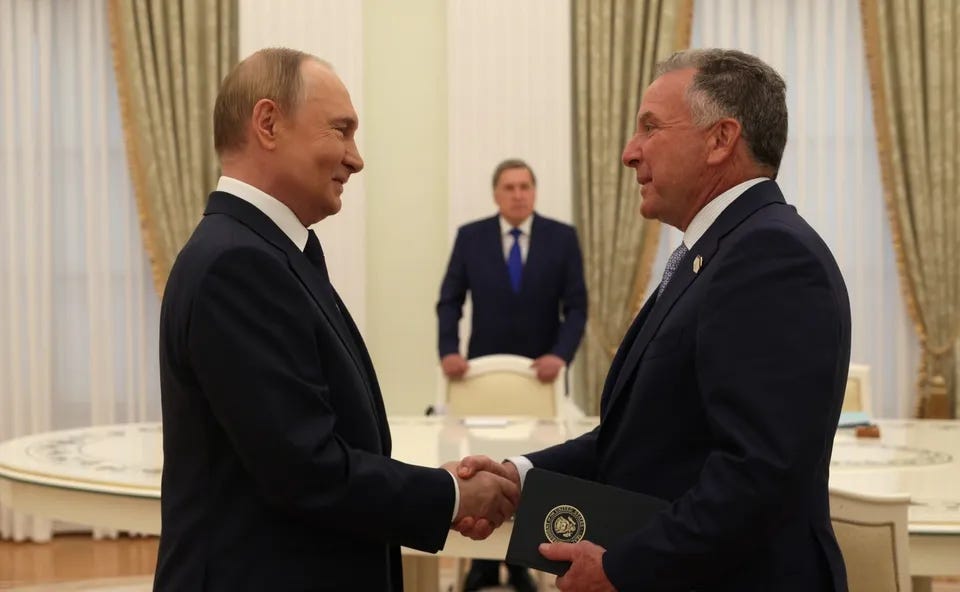Ultimatum Diplomacy Meets Nuclear Dress Rehearsal
Washington's Friday ultimatum for a ceasefire and threats of "secondary tariffs" to cut off Moscow's oil revenue leave Putin unimpressed as he prepares Zapad-2025 nuclear drills while hinting Ukraine's front could crumble in months.
What happened?
Two days before President Trump's August 8 cease-fire deadline, which threatens sweeping new sanctions and 100% "secondary tariffs" on buyers of Russian exports, US special envoy Steve Witkoff met with Vladimir Putin in the Kremlin. According to Kremlin insiders, Putin will ignore the ultimatum. He believes that Ukrainian lines could collapse within two to three months and that additional sanctions are survivable. In other news, Russia and Belarus confirmed that the strategic exercise "Zapad-2025" will begin next month with 13,000 troops, though Western estimates are as high as 100,000. These estimates include scenarios involving the use of tactical nuclear weapons.
Source: Putin's Meeting with US President's Special Envoy Steve Witkoff on Aug 6, 2025.
Why does this matter?
Secondary sanctions play: Tariff threats against India and China aim to reduce Russia's oil revenue just as July energy income fell 27%. Previous tariff headlines lifted Brent by $2/bbl and widened European credit spreads; another round could compound inflation risks that are already troubling the Fed.
Escalation signal: Zapad drills preceded the 2022 invasion, and rehearsing nuclear and hypersonic strikes raises the likelihood of miscalculation in deterrence. Foreign Policy analysis estimates that Russia can fight for at least three years under current sanctions, calling into question the leverage of Trump's deadline.
Diplomatic optics: Moscow's confidence, as well as its recent record of drone and missile strikes on Kyiv, undermines Washington's claim that the pressure is working.
What's next?
If Putin rejects the Friday ultimatum, the White House is expected to announce tariff hikes and secondary measures within 48 hours. India would then have to choose between cheaper Urals crude and access to the US market. This decision could disrupt oil flows and currencies across Asia. NATO will monitor Zapad-2025 for evidence of Iskander-M live-fire exercises near Belarus. Any missile overflight of Ukraine or Poland would increase risk premiums and prompt emergency EU energy consultations.
finformant view
Trump's tariff leverage is potent but limited; it only squeezes Moscow's cash reserves if major importers comply. Without compliance, the Kremlin trades higher economic pain for tactical depth on the battlefield, and Zapad-2025 demonstrates a readiness to escalate. Hedging exposure to commodities and favoring defense and cybersecurity companies seems wise.



